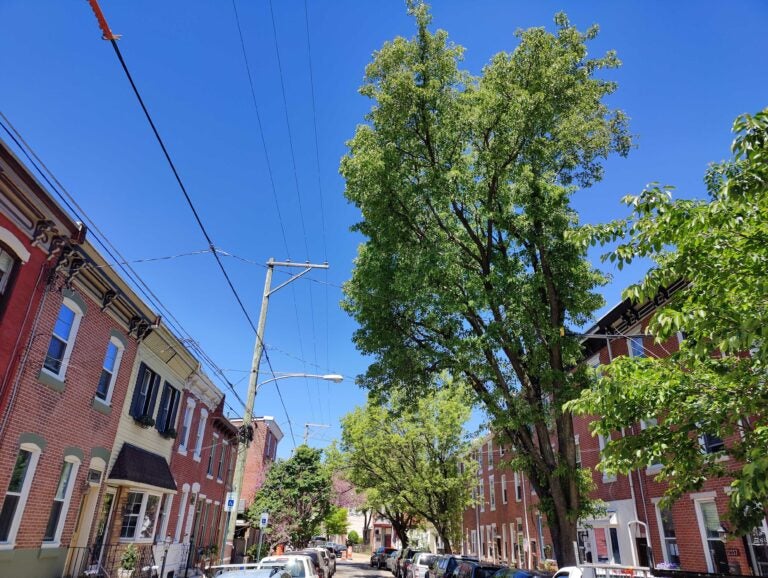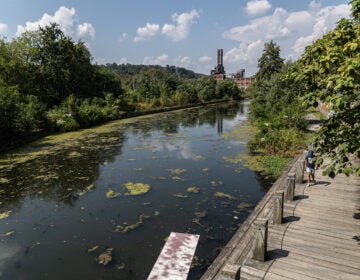As spring flowers bloom, Callery pear trees can no longer be planted in Pa.
Pennsylvania is just one of more than a dozen states that have recently banned — or want to ban — the ornamental tree.
Listen 1:07
A Callery tree is seen on a Fishtown street. (Peter Crimmins/WHYY)
From Philly and the Pa. suburbs to South Jersey and Delaware, what would you like WHYY News to cover? Let us know!
Sought after for its fluffy white blossoms, the Callery pear tree has been a popular feature on people’s lawns for decades.
The ornamental tree, known for its pungent and sometimes foul smell, is one of the first to bloom in early spring.
“I think the biggest reason that they’re popular is because of the showy white flowers, and because the canopy stays relatively narrow,” said arborist Jason Parker, of Davey Tree Company. “So in a development, it was a good tree to plant in peoples’ front yards — it kind of increases the curb appeal.”
However, birds and other animals can spread the seeds, so the trees grow vastly and crowd out native plants, disrupting ecosystems.
Pennsylvania stopped the sale of the majestic tree, native to Asia, in February. The state, which added the tree to its noxious weed list in 2021, is just one of more than a dozen that have recently banned — or want to ban — the tree.
“When you have one pear, typically you’re going to see a whole bunch more sprout up around it,” Parker said. “It’s going to kind of be the big bully, and overtake the other potentially more desirable species that may not grow as quickly or as prolifically.”
The Pennsylvania Department of Agriculture said it doesn’t expect the tree to be completely eradicated because it’s too widespread. Still, the agency hopes to spark greater awareness about the invasive plant.
“The addition of Callery pear, and other similar species, to the Noxious Weed List will ultimately help improve the quality of landscapes, gardens, and unmanaged areas,” a spokesperson said in an email.
“The addition of Callery pear to the Noxious Weed List has opened up a conversation about what it means for plants to be noxious and about invasive plants in general. Decreasing noxious weed and invasive plant populations will ultimately allow native ecosystems to regenerate.”
Growers and landscapers have been working to remove stock from their inventory since 2021, and destruction orders will be issued to those that still have Callery pear in stock.
The department also encourages landowners to remove the trees from their lawns and other property. Residents can contact their local nursery or garden center to help provide alternative options, a spokesperson said.
Arborist Jason Parker recommends homeowners consider cherry trees.
“It has a nice spring flower as well,” he said. “Some varieties come with a white flower or some come with a pink flower. So, you’ve got those options.”

Get daily updates from WHYY News!
WHYY is your source for fact-based, in-depth journalism and information. As a nonprofit organization, we rely on financial support from readers like you. Please give today.






